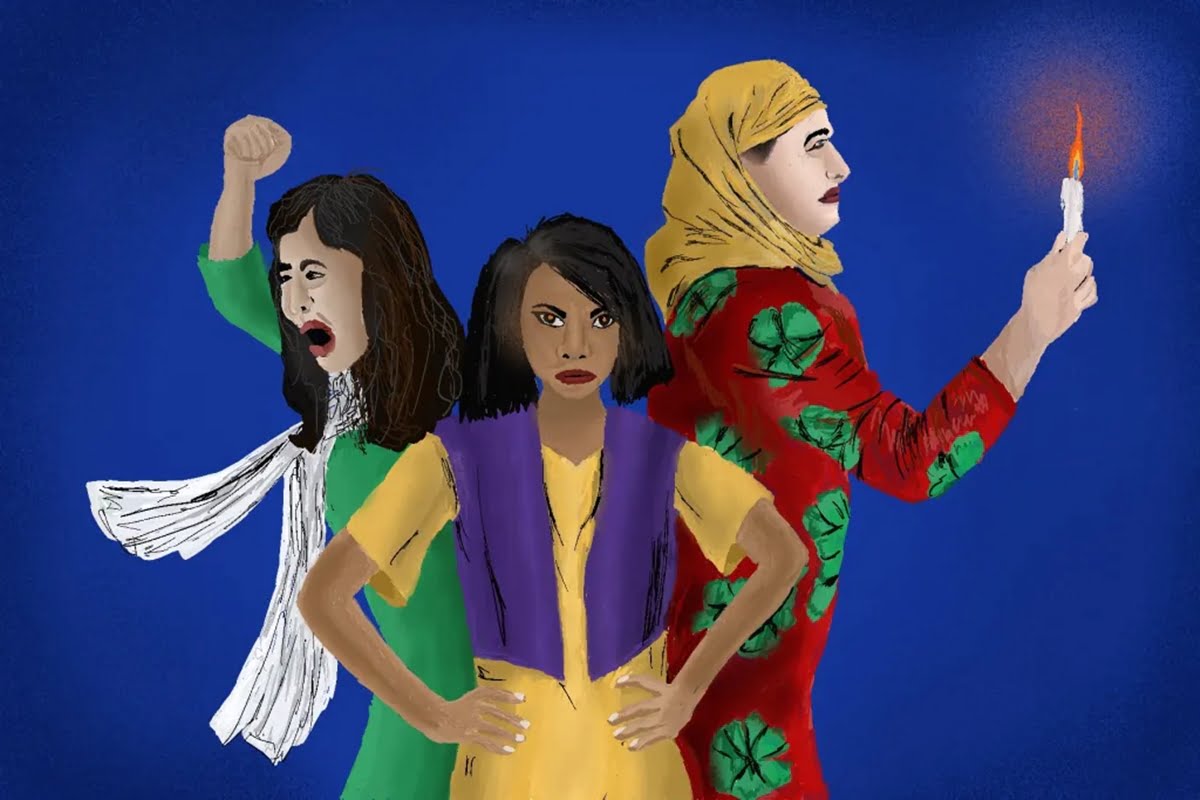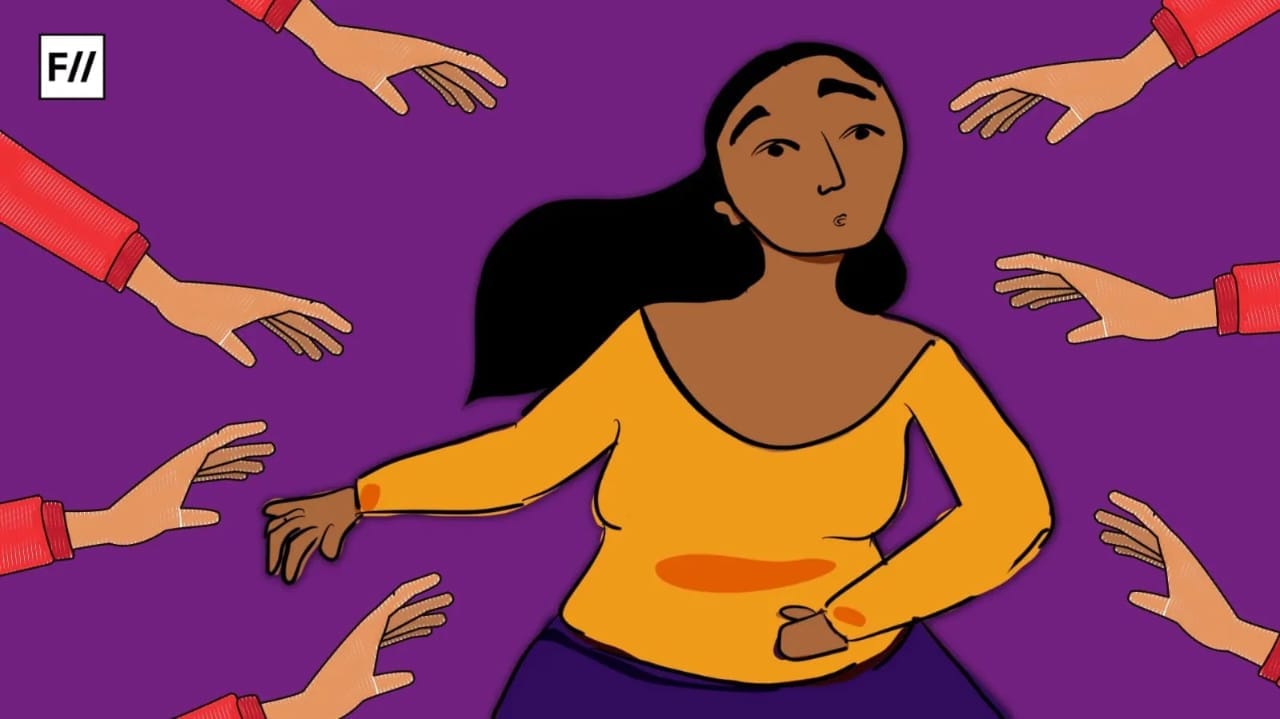Trigger warning: Abuse
Note: I may say abuser in this article, but please know that I’m using it as short hand for all types of abuse and violence, sexual or otherwise, that the patriarchy perpetrates, perpetuates, and deems routine.
Culturally, the idea of forgiveness is integral to Indian society. There is a perception that forgiveness is divine, you know, the whole turn-the-other-cheek spiel. While it maybe an important virtue, I’m here to tell you that you don’t have to forgive the person who abused you. The idea that you ‘have to’ do anything is ludicrous in itself.
When I first began to openly discuss my experiences dealing with sexual violence, whether in a limited context of family and friends or more widely in my writing, I was constantly confronted by the idea of forgiveness. I was told that I would not be able to move on with my life without forgiving the man who abused me. Most of the people encouraging me to forgive him were mired in their own understanding of culture and the virtue of forgiveness and didn’t seem to understand that not everyone is on the same exact journey. And while forgiveness is important to me, it’s not forgiving my abuser that matters, but forgiving myself.
Also read: What Is Toxic Masculinity And How Does It Affect Men?
Most of the people encouraging me to forgive him were mired in their own understanding of culture and the virtue of forgiveness and didn’t seem to understand that not everyone is on the same exact journey. And while forgiveness is important to me, it’s not forgiving my abuser that matters, but forgiving myself.
Understanding abuse:
My own personal journey was filled with fear, dread, and despair because of one man. I spent years blaming myself, buying into the idea that I could have worn something different, I could have been less obvious about my own sexual desires, I should never have let him into my life. But, that’s not how it works. After years of therapy, I am still stumbling upon more realizations, but I did come to understand a couple of important things about the nature of sexual violence and abuse:
1. Somebody who wants to abuse you (emotionally, sexually, physically) will probably find a way to do it regardless of what you wear. And they definitely don’t wait for consent. Indeed, abuse is predicated on the idea that consent is unimportant. Let’s address the question of power because unquestionably, abuse is about dominance and power. The abuser wants to subjugate your wants and needs to their desires. By encouraging forgiveness (and in some cases downright forcing you to do so) the patriarchy perpetuates the same power dynamics that exist within sexual violence and abuse because your needs and desires, your path to find a way to live again (whatever that might look like for you), are subjugated to the desires of forgiveness by the patriarchy. By deeming your choices inferior to forgiveness, the patriarchy gets to push you into the same cycle of subjugation as abuse.
2. The guilt I felt about ‘letting myself’ stay with a man who was clearly abusive and sexually violent was not my own, it was created from a system that benefits from our silence. The entire concept of forgiving someone who has so deeply violated you had to have been created by someone who benefitted from it. Let me lay it out: some social institution (most likely the patriarchy, it could well be religion which in India is deeply intertwined with the patriarchy) tells you yeh toh sabko hota hai, isme kaunsi badi bat hai (it happens to everyone, what’s the big deal) you must forgive the person to move on. The notion only sounds ok when you don’t examine it.
In reality there are, at the very least, three problems with this way of thinking, so I’ll talk about them in turn. First, these ideas conflate forgiveness and moving on. These are not the same, just because you forgive someone doesn’t mean you automatically move on. Moving on requires confronting the feelings you have about what happened to you, the fear, the shame, the dread, the guilt, and learning to live all over again. Forgiveness on its own cannot give you that.
Second, it places the burden on the shoulders of the survivor of abuse rather than where that blame should actually lie–on the person who abused you. It is difficult enough to carry the burden of having survived such a horrific ordeal without adding this burden too. The blame lies squarely on the shoulders of the person who did this to you. You, dear survivor, do not need to take on this additional burden too.
Third, the idea of forgiveness seems to go hand in hand with the idea that once the abuser is forgiven, you will remain silent about the abuse. After all, once you have forgiven your abuser there’s nothing really left to say about the abuse because–re: first point– by forgiving you have moved on. Accordingly, it is a rather an illogical way of thinking.
Then, ostensibly, the only people who benefit from it are the ones who abused you and more generally the social institution of the patriarchy gets to live another day pretending that there is really nothing wrong with it. Think about it, simply saying you forgive someone doesn’t bring healing, in fact it might result in a totally different tumult of emotions because you aren’t honouring your feelings, which might range from hate to fear. It might actually result in more self-loathing.
Forgiveness might help you push away these feelings that are difficult (to say the least) but it can bring on another form of denial. It did for me, I tried to remain friends with the man who raped me, and I still don’t understand why. I thought that by saying the words that I had forgiven him I had magically moved on, but denial just made the wounds worse and the scars deeper.
Alternatives:
Please understand that I do not say that you cannot forgive your abuser, simply that you do not have to. You do have a choice. Perhaps you feel that you will be unable to move on until you forgive them or you are not in a safe enough position that not forgiving them is not an option. Whatever you choose is ok. But, please know that you have options and that forgiveness is not the only way and that you are not less than anyone else if you choose not to forgive them. There are many different approaches to this issue and you need to find what works for you. I understand that for some restorative justice can be cathartic. And for others forgiveness might be key.
For my part, I will not stay silent and be bullied into forgiving someone who absolutely does not deserve it. Like the trust that was broken by abuse in the first place, forgiveness too should be earned, its not something that I will hand out freely. No, I will not let the patriarchy benefit when it has damaged my life in irrevocable ways. No, the person who abused me does not get a pass because they claimed to have loved me. Loving someone is not an excuse to treat them badly, though I might have been deluded into believing that once upon a time. Through years of therapy, I have moved on, I am learning that the only important piece of forgiveness is that I do want to forgive myself. I have learnt that blaming myself is exactly what the patriarchy wants because it benefits by limiting us and prescribing how we live, ranging from what to wear, what you can’t do when you menstruate, staying in an abusive marriage, to forgiving the person who tried their hardest to take away your dignity and autonomy and certainly never saw you as any kind of equal but as someone to exert power over and subjugate.
Also read: ‘You Will Be Believed’: Unchosen Suffering & My Evolving Relationship With My Body
I will take all the rage that I feel and turn it into passion to channel back at the patriarchy. I will try my hardest to spread the word about the wrongs of social institutions, like the patriarchy, and write about it so that other survivors realize that they are not alone, that we grapple with the same struggles. And that by doing that, perhaps others will not have to feel the same pain that I did.
Instead let me tell you what I will do. I will take all the rage that I feel and turn it into passion to channel back at the patriarchy. I will try my hardest to spread the word about the wrongs of social institutions, like the patriarchy, and write about it so that other survivors realize that they are not alone, that we grapple with the same struggles. And that by doing that, perhaps others will not have to feel the same pain that I did. Just know, dear survivor, that all the choices that exist in the world can be yours, find what feels right to you and don’t be bullied into forgiveness because others tell you its what’s right because your journey is only yours and you’re the one who has to live it. You always have a choice. It may take strength that you didn’t know you have or can’t find right now. And that’s ok too, because what you went through is something no one should ever have to go through. You’re already carrying a heavy burden you don’t need to carry this one too.
Aishani is a lawyer and enjoys writing and reading in her free time. She hopes to create a better world through all her work and writing. You can find her on Twitter.
Featured image credit: Aasawari Kulkarni/Feminism In India





♥️